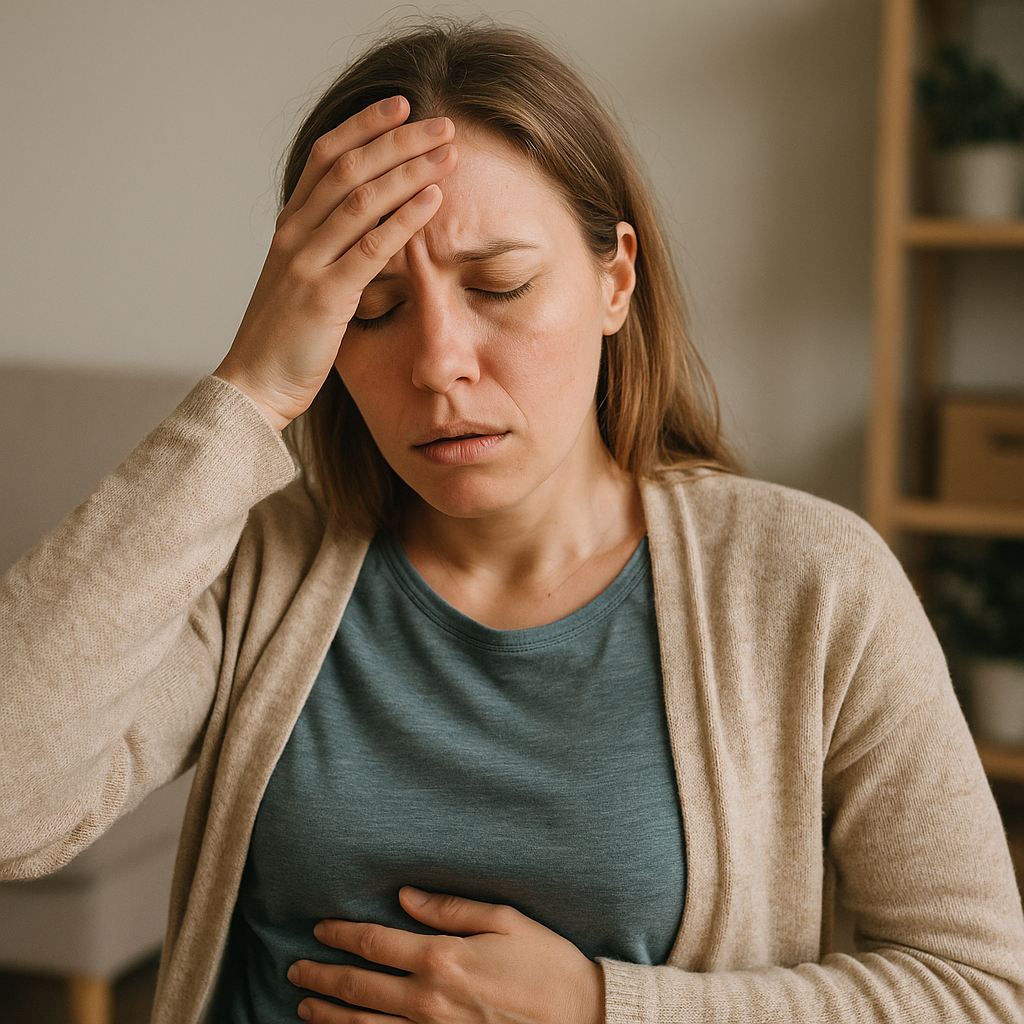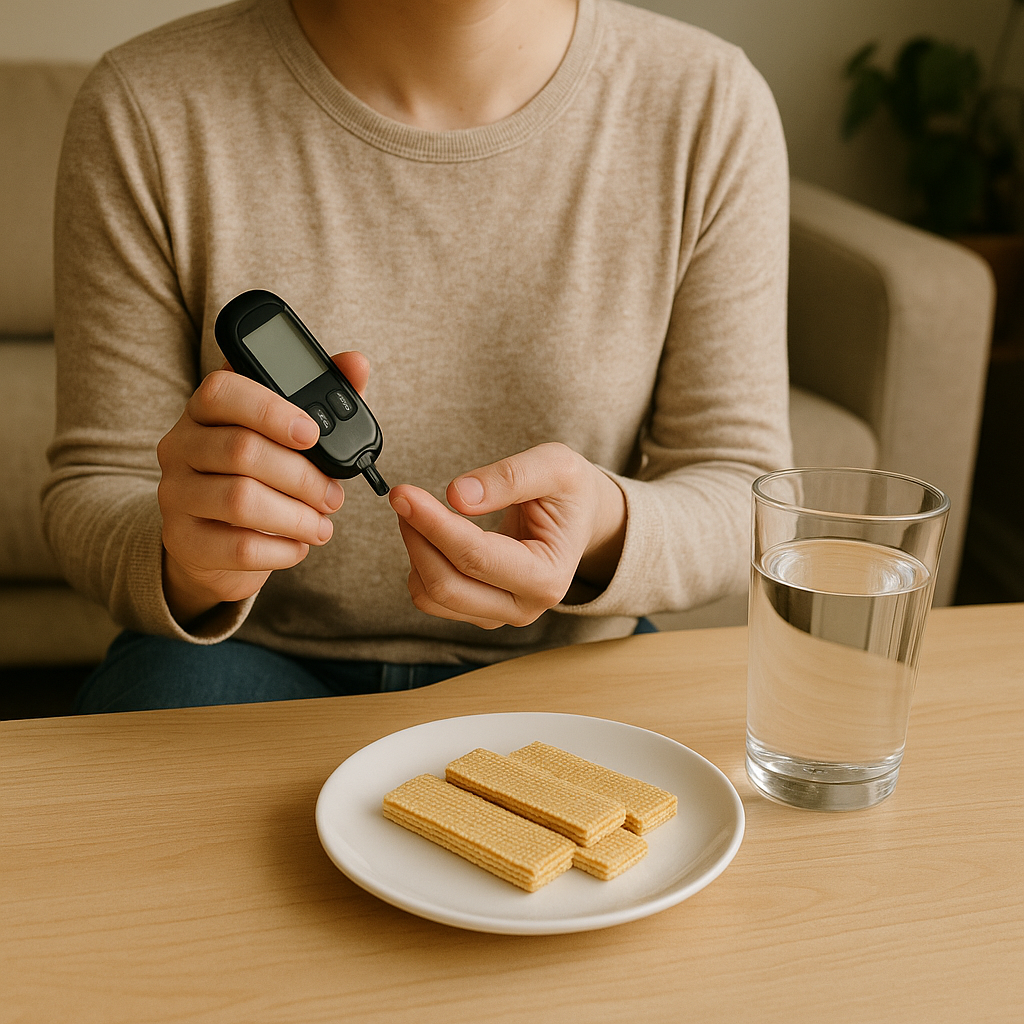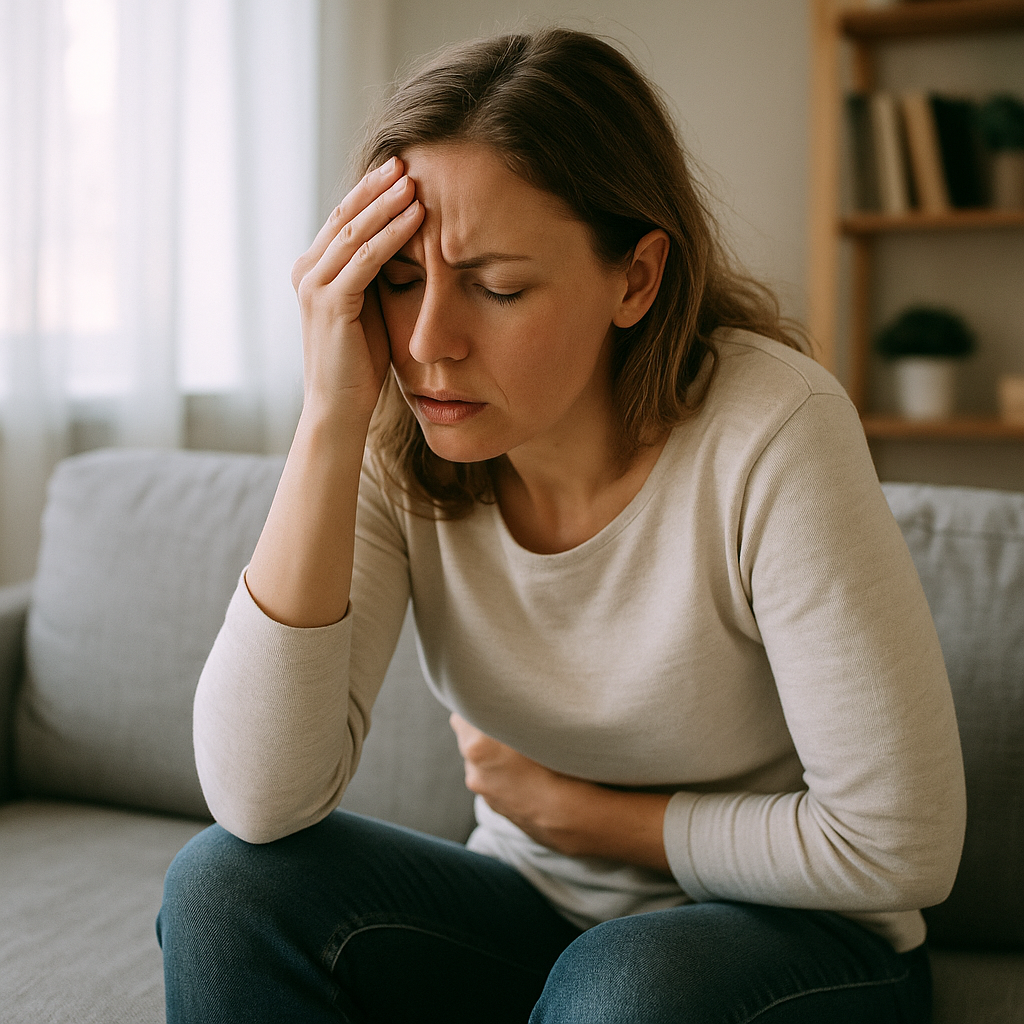Ask Ayurvedic doctor a question and get a consultation online on the problem of your concern in a free or paid mode. More than 2,000 experienced doctors work and wait for your questions on our site and help users to solve their health problems every day.
Shop Now in Our Store
What Causes Low Blood Sugar Without Diabetes?

Okay, so here’s a weird one: You’re lightheaded, shaky, and maybe even a little sweaty — and you haven’t even had caffeine yet. Your brain feels foggy, like someone turned down the volume on your thoughts. You think, “Is this what a sugar crash feels like?” But you’re not diabetic. Your blood sugar shouldn’t be this low… right?
Turns out, it can happen. Low blood sugar without diabetes — also known as non diabetic hypoglycemia — is very real. And while it might sound like something only super health-conscious folks talk about in wellness podcasts, it’s actually more common than people think.
So what causes low blood sugar without diabetes? And more importantly, what can you do about it? That’s what this piece is for. We’ll talk through the real causes, the odd (but explainable) symptoms, and even dive into what Ayurveda says about this whole thing. Because, honestly? Western medicine doesn’t always have all the answers — especially when you're feeling weird and your labs are "normal."

What Is Low Blood Sugar Without Diabetes (Non-Diabetic Hypoglycemia)
Non-diabetic hypoglycemia is like this paradox: your blood sugar drops too low, but you’re not on insulin, and you haven’t been diagnosed with diabetes. It feels unfair — or like your body’s playing tricks on you. But it’s not. It’s just reacting to something, even if it’s hard to pinpoint what.
So technically, blood sugar is considered low when it falls below 70 mg/dL. But symptoms can show up even before that, especially if your body isn’t used to sudden drops. The confusing part? Most doctors test your fasting glucose and say you’re fine. But timing is everything. For many folks, especially those with reactive hypoglycemia non diabetic, it’s the sudden crash after eating that sets off the symptoms.
Non-diabetic reactive hypoglycemia is exactly what it sounds like: your body overreacts to sugar (or carbs) and releases too much insulin, which then makes your blood sugar tank. Cue the shakiness, confusion, and hangry panic.
Causes of Low Blood Sugar Without Diabetes
Let’s get into the why. Because if you’re not diabetic, what’s messing with your blood sugar?
Skipped Meals, Poor Digestion, and Vata-Pitta Imbalance
Skipping meals might seem harmless — even noble, depending on which TikTok “health trend” you follow. But for some people, especially those with a fast-burning metabolism (Ayurveda would call this a Pitta trait), missing meals creates a perfect storm. Add to that some digestive irregularity (hello, Vata), and your blood sugar starts bouncing like a yo-yo.
Poor digestion means you’re not absorbing nutrients properly. If your body doesn’t extract the glucose it needs from food efficiently, it reacts as if you haven’t eaten at all. Cue low blood sugar symptoms without diabetes: lightheadedness, fatigue, irritability.
It’s not always about how much you eat — it’s how well your body uses what you eat. And if your internal fire (or Agni, as Ayurveda calls it) is weak or unstable, you’re going to feel those crashes more often.
Stress, Overexertion, and Improper Food Combining
Ah, stress — the invisible culprit behind, well, everything. Chronic stress activates your adrenal glands, which can lead to hormone imbalances, including cortisol dysregulation. Over time, this messes with your blood sugar regulation, even if you don’t have diabetes.
Plus, overexertion — whether it’s pushing too hard at the gym or just living in go-go-go mode — eats up glucose fast. If your energy demand outpaces your supply, boom: hypoglycemia, non diabetic style.
And food combining? Honestly, it’s underrated. If you're downing sugar-laden granola with fruit juice, your insulin spikes, crashes, and leaves you shaky. Not everyone reacts this way, but if you’re prone to non diabetic hypoglycemia, it matters more than you'd think.

Symptoms of Low Blood Sugar Without Diabetes
So how do you know if you’re dealing with non diabetic hypoglycemia symptoms — and not just having an off day?
That’s the tricky part. The symptoms are vague. They overlap with anxiety, burnout, and sometimes even dehydration. But there are patterns. Once you notice them, it’s hard to unsee.
How Sudden Drops Affect Mind, Mood, and Body
One second, you're fine. Then… it hits. The shaky hands, the brain fog, maybe a weird wave of nausea. You might feel like you have to eat something immediately, or else you’ll lose it — emotionally or physically.
Common low blood sugar symptoms without diabetes include:
-
Feeling shaky or jittery
-
Lightheadedness or dizziness
-
Sudden irritability or anxiety (like, disproportionate to what's happening)
-
Blurred vision
-
Sweating, even when you’re not hot
-
A weird, intense hunger that hits out of nowhere
-
Trouble thinking clearly — your brain just won’t cooperate
Here’s a weird one I’ve heard from people (and felt myself): you feel like crying, for no reason. Like a wave of emotional instability just crashes through you. That’s not “just in your head” — it’s literally your brain starving for glucose.
For some folks, especially those with reactive hypoglycemia non diabetic, the crash comes about 1–3 hours after a meal. You eat something (often carb-heavy), feel okay… and then boom, your blood sugar drops like a rock. That’s when the body says, “Not cool, buddy.”
And it’s not only about food. Stress, dehydration, lack of sleep — all of it piles on. That’s what makes this hard to pin down: it’s not a single trigger. It’s a combination.

Ayurvedic Treatment for Low Blood Sugar Without Diabetes
Okay, let’s pivot. Western medicine acknowledges non diabetic hypoglycemia, but often shrugs when you ask, “What should I do about it?” Enter Ayurveda.
Now, I’m not here to say Ayurveda is magic. But it does offer a framework for understanding these weird energetic shifts in the body — something that’s often missing in clinical approaches.
Stabilizing Agni with Regular, Balanced Meals
First, your Agni — your digestive fire — needs to be stable. If you’re skipping meals or eating erratically, you’re confusing your body. In Ayurvedic terms, this disrupts both Vata and Pitta, which are key players in energy regulation.
Regular meals matter. And I mean real food — warm, nourishing, grounding stuff. Think kitchari, soups, stews. Add a little ghee. Avoid the sugar spikes. Basically, eat like someone who respects their stomach.
Eating every 3–4 hours might sound excessive, but for people with hypoglycemia non diabetic, it’s honestly life-saving. Blood sugar loves rhythm. So do your hormones. Give them a pattern, and they’ll start behaving.
Herbal and Natural Support for Blood Sugar Stability
A few herbs that come up again and again:
-
Ashwagandha (for stress reduction)
-
Licorice root (to support adrenal balance — but careful with high blood pressure)
-
Guduchi and Triphala (for digestive support and blood sugar regulation)
These aren't quick fixes, and they’re not one-size-fits-all. But when used properly (ideally under the guidance of an Ayurvedic practitioner), they can help stabilize your internal systems over time.
Lifestyle and Breath Practices to Maintain Energy
And yeah, let’s talk lifestyle. Ayurveda isn't just about herbs and food — it's how you live.
Simple pranayama (breath practices) like nadi shodhana or box breathing can regulate the nervous system, helping prevent stress-induced sugar dips.
Sleep matters, too. Ayurveda recommends going to bed before 10 p.m. to stay in sync with natural rhythms. Sounds woo-woo, but there’s something to it. When you’re sleep-deprived, your cortisol spikes, and bam — your blood sugar takes a hit.

How to Prevent Non-Diabetic Reactive Hypoglycemia
If you’ve made it this far, you’re probably thinking, “Cool, I know what it is — but how do I stop feeling like this?” Fair question.
Preventing non diabetic reactive hypoglycemia isn’t just about reacting to symptoms — it’s about managing the conditions that cause them. Think of it like gardening: You’re not just pulling weeds; you’re tending the soil so they don’t grow in the first place.
Here’s the big one: balance your meals. Each plate should have protein, healthy fat, and slow-digesting carbs. No more dry toast for breakfast, no more fruit-only smoothies. If you eat carbs alone — especially refined ones — your blood sugar will spike and then crash. You need that trio to slow down digestion and keep energy stable.
Second: eat regularly. You might feel fine skipping breakfast until you don’t. Once your blood sugar regulation goes off the rails, it’s harder to bring it back. Even if intermittent fasting worked for you at one point, that might change — especially if you're prone to non diabetic hypoglycemia. Bodies evolve. Respect that.
Don’t forget about hydration. Dehydration mimics low blood sugar symptoms — and can even cause them. Try adding a pinch of sea salt and lemon to your water. It helps maintain electrolytes and supports adrenal health.
Movement also plays a role. Gentle exercise (like walking after meals) helps improve insulin sensitivity. But don’t overdo it — intense workouts can sometimes trigger blood sugar crashes, especially if you haven’t eaten properly beforehand.
And if you suspect adrenal fatigue? Treat that like a root issue. It’s connected. A tired adrenal system can’t regulate blood sugar well. Cortisol, insulin, and glucose — they’re part of the same conversation.
Conclusion
So, what causes low blood sugar without diabetes? Honestly, it’s a mix. It could be diet. It could be stress. It could be your gut or hormones or just your constitution — how you're built.
But here's the thing: non diabetic hypoglycemia isn’t imaginary. And it’s not just about eating more sugar. In fact, that often makes it worse.
What you need is rhythm. Stability. Food that nourishes, herbs that support, and habits that make space for your body to self-regulate.
And if all of this sounds kind of annoying or exhausting — I get it. But once you start tuning into your body’s patterns, it becomes less about managing symptoms and more about preventing chaos before it even starts.
FAQs
What condition mimics low blood sugar?
Adrenal fatigue, anxiety disorders, and even dehydration can mimic symptoms of low blood sugar. Sometimes, it’s not about glucose at all — but how your body is perceiving stress.
Can a healthy person be hypoglycemic?
Yes, especially if they’re skipping meals, under chronic stress, or have imbalanced digestion. “Healthy” doesn’t mean immune to blood sugar dips — especially if you’re pushing your body hard without proper recovery.
How is non-diabetic hypoglycemia different from general fatigue?
Fatigue is a general lack of energy, while non diabetic hypoglycemia often comes with a cluster of symptoms: shakiness, mood swings, intense hunger, and mental fog — often suddenly, and often resolved quickly by eating.
This article is checked by the current qualified Dr Sujal Patil and can be considered a reliable source of information for users of the site.

